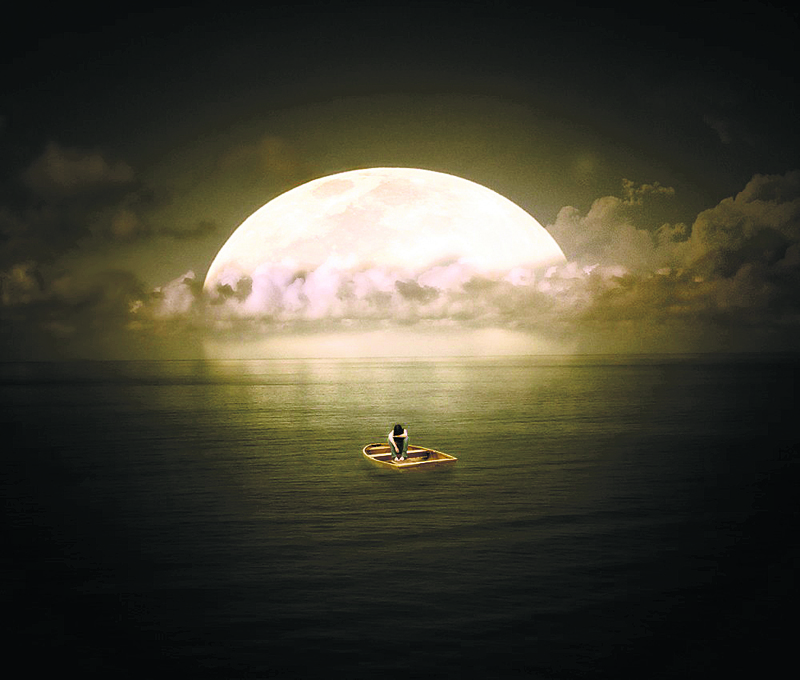
OR

A quick rehash, then, of a few things I have written in this space before. I have written more than once about my sieve-like brain and it perpetual struggles to retain anything meaningful, even while it’s chockfull of the useless stuff I keep trying to forget. After that, I wrote of how even this rather forgetful brain tends to retain some particularly strong impressions: heady stuff like reading Anna Karenina and War and Peace, in quick succession. Of how I was captivated by the way Tolstoy could in his fiction better capture the real world than even the best works of non-fiction.
In fact, as you grow, older by the day, it gets increasingly difficult to rely on your memory, as you find yourself mixing up events that happened not years but decades apart. Even when I am dead sure, don’t I mix and mash fact and fiction in the process of recall? I think I do that all the time. But memories, flawed as they are, are also all that we have. This April, let me try and recall one of my strongest childhood memories.
It was April 8, 1990: the day King Birendra restored multiparty democracy. I was just a small kid at the time. I remember it was a joyous day, not because our democratic rights had been restored, which meant nothing to me at the time, but because I had overheard someone say (who?) that there would be no more ‘lights-out’. For the few weeks leading up to April 8, every night we would have to turn off all the lights in our house (for 15 minutes, an hour? I forget), as a sign of protest against the ‘autocratic monarch’. If you didn’t, the unruly mobs of avowed democrats were liable to lob sizable stones through lit windows.
So lights-out there would be no more.
There was a lot of commotion in our locality that day and I headed out to explore. There used to be a noodle factory next door and every day noisy tractors took the glitzy noodle packets to the market. But, curiously, on that day, one tractor driver, instead of filling his vehicle with the usual noodle packets, invited five or six of us kids in the neighborhood to hop in. He was so happy he would take us out for a spin.
We clambered up the trailer at the back. Someone handed me a red flag, of Nepali Congress I think, and off we went.
I may have got the flag wrong and I am not even sure any more this particular tractor had anything to do with the noodle factory. But what I do know, with as much certainty as I can muster, that I was delirious on that tractor trip.
It was my first-time on a tractor; and no one had taken me on a city tour before. But more than that I was happy because who wasn’t that day! I saw people dancing with joy in the middle of the street. I saw complete strangers hug one another. There was so much vermillion on people’s faces, it was Holi Part II. Their sheer joy rubbed off on you easily. That, in sum, is how I today remember that historic day.
Fast forward 16 years to April 24, 2006. This was the day the reigning monarch, Gyanendra Shah, not only abdicated his throne but in effect signed a death warrant for the Shah dynasty. It was another momentous occasion—and déjà vu as the next day hundreds of thousands of people took to the streets, like they had done back in 1990, to celebrate the final nail in the coffin of the Nepali monarchs who had by then become synonymous with devils. But why wasn’t I as happy this time?
Had time made me cynical? Or, older and supposedly wiser, had I become more realistic of the worth of political revolutions?
Or perhaps, as Leon Trotsky once put it, I was now filled with “frustrations and cynicism” because I had “no great idea which raises you above personal misery, above weakness, above all kinds of perfidy and baseness.”
Like me, Trotsky, the Russian revolutionary who was exiled after losing a bitter power struggle with Stalin, was a huge fan of Tolstoy. Trotsky admired Tolstoy for the same reason that I did. “Tolstoy delineates the spiritual life of his heroes [like Anna Karenina],” wrote Trotsky in one of his tributes to Tolstoy, “in accord with the day-to-day life of their motherland: calmly, without haste and with vision unclouded”.
But that kind of clarity of mind and memory doesn’t come easily to us ordinary mortals, especially not those of us who came of age in Nepal during the 1990s and 2000s. Could it be that we have accumulated plenty of experiences, but without a firm anchor, the ‘great idea’ that animates our lives, we are doomed to forever drift, crashing in this shore of revolution today and in that beach of revolt tomorrow?
The writer is the op-ed editor at Republica. He can be contacted at biswas.baral@gmail.com
You May Like This

Ready Forever
Have you ever been jobless? I believe most of us have at some point in our lives. And just imagine... Read More...

Ready Forever
Falling in love, relating the songs that we are listening to that one person, might sound cheesy, but when we... Read More...

Forever 21 Nepal initiates brand revolution
Kathmandu: The clothing store Forever 21 Nepal was officially launched with a runway show at Hyatt Regency, Boudha on Sunday. The... Read More...







Just In
- NRB to provide collateral-free loans to foreign employment seekers
- NEB to publish Grade 12 results next week
- Body handover begins; Relatives remain dissatisfied with insurance, compensation amount
- NC defers its plan to join Koshi govt
- NRB to review microfinance loan interest rate
- 134 dead in floods and landslides since onset of monsoon this year
- Mahakali Irrigation Project sees only 22 percent physical progress in 18 years
- Singapore now holds world's most powerful passport; Nepal stays at 98th











Leave A Comment